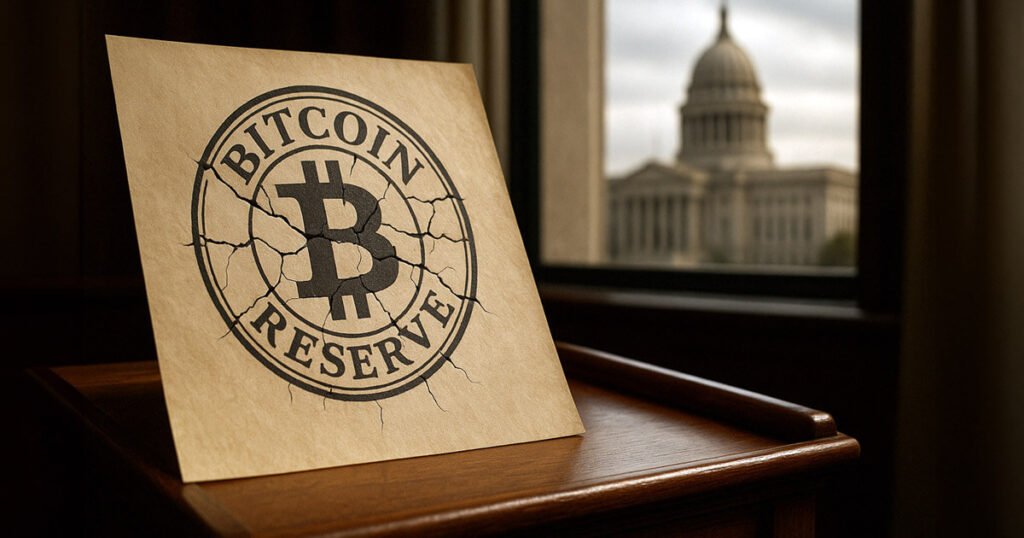Oklahoma recently decided to exit the race to establish a Strategic Bitcoin Reserve (SBR) after a crucial bill, House Bill 1203, failed to advance in the State Senate. The Oklahoma Senate Revenue and Taxation Committee voted 6-5 to strike down the bill, despite earlier momentum in the House. The bill aimed to authorize the state treasurer to allocate public funds to Bitcoin and select stablecoins, but only Bitcoin currently meets the $500 billion market capitalization requirement.
Senator Christi Gillespie’s change of heart, from planning to vote against the bill to ultimately voting “yes” after hearing from constituents, was not enough to change the outcome. With Oklahoma’s exit, it now joins other states like Montana, South Dakota, Wyoming, North Dakota, and Pennsylvania where similar efforts have either stalled or failed. However, 21 other states are still actively exploring Bitcoin reserves, with some like Arizona, New Hampshire, and Texas leading the charge.
In total, the US currently has 117 pro-Bitcoin bills under consideration, with 47 directly tied to Strategic Bitcoin Reserve initiatives across 26 states. Discussions about Bitcoin reserves are also gaining traction at the federal level, with the government evaluating various funding options for its planned Bitcoin reserve. Bo Hines, the Executive Director of the Presidential Council of Advisers on Digital Assets, confirmed that options such as using tariff revenue and revaluing gold-backed Treasury certificates are being considered to support a Bitcoin reserve without increasing the national budget.
Despite Oklahoma’s exit from the race, momentum for establishing Bitcoin reserves across the US continues to grow. The failure of the bill in Oklahoma highlights the challenges and varying levels of support for such initiatives at the state level. The decisions made by individual states will continue to shape the future of Bitcoin reserves in the US and have broader implications for the integration of cryptocurrencies into public finance systems.
In conclusion, the debate surrounding Bitcoin reserves in the US is far from over, with states like Oklahoma making significant decisions that impact the trajectory of such initiatives. While some states forge ahead with plans to incorporate Bitcoin into public finance, others face roadblocks and setbacks. The ultimate outcome of these efforts will not only determine the fate of Bitcoin reserves at the state level but also set a precedent for the broader adoption of cryptocurrencies in the realm of public finance.


